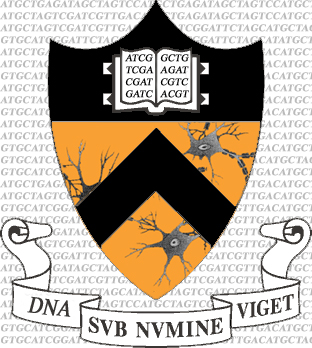Team:Princeton
From 2008.igem.org
(Difference between revisions)
| Line 11: | Line 11: | ||
The goal of the Princeton iGEM team is to utilize the immense capabilities of neurons and in particular of neuronal networks – in terms of efficiency, speed of transmission of information and output, physical size, robustness, reliability, and programmable versatility – by taking two very different approaches to neuronal networks using gene-regulatory circuits.[[Team:Princeton/Project#Overall_project | Read more.]] | The goal of the Princeton iGEM team is to utilize the immense capabilities of neurons and in particular of neuronal networks – in terms of efficiency, speed of transmission of information and output, physical size, robustness, reliability, and programmable versatility – by taking two very different approaches to neuronal networks using gene-regulatory circuits.[[Team:Princeton/Project#Overall_project | Read more.]] | ||
| - | |[[Image:iGEM_Logo2.jpg|right| | + | |[[Image:iGEM_Logo2.jpg|right|250px]] |
|} | |} | ||
THIS WIKI IS STILL UNDERGOING CONSTRUCTION. PARDON THE MISSING LINKS AND ANY RANDOM STUFF THAT POPS UP. | THIS WIKI IS STILL UNDERGOING CONSTRUCTION. PARDON THE MISSING LINKS AND ANY RANDOM STUFF THAT POPS UP. | ||
Revision as of 22:44, 14 September 2008
PRINCETON IGEM 2008
| Home | Project Overview | Project Details | Experiments | Results | Notebook |
|---|
| Parts Submitted to the Registry | Modeling | The Team | Gallery |
|---|
| When they’re not locking each other in a 4 C freezer or arguing about whether Dennis Kucinich is anti-American, the Princeton iGEM team is hard at work: to do with neurons what electrical engineers had already done with silicon chips back when the Charleston was the dance craze sweeping the nation. They are a motley crew of accomplished coffee thieves with majors ranging from chemical engineering to economics, which probably explains why they can’t agree upon anything and settle their differences with cold torture.
The goal of the Princeton iGEM team is to utilize the immense capabilities of neurons and in particular of neuronal networks – in terms of efficiency, speed of transmission of information and output, physical size, robustness, reliability, and programmable versatility – by taking two very different approaches to neuronal networks using gene-regulatory circuits. Read more. |
THIS WIKI IS STILL UNDERGOING CONSTRUCTION. PARDON THE MISSING LINKS AND ANY RANDOM STUFF THAT POPS UP.
 "
"

